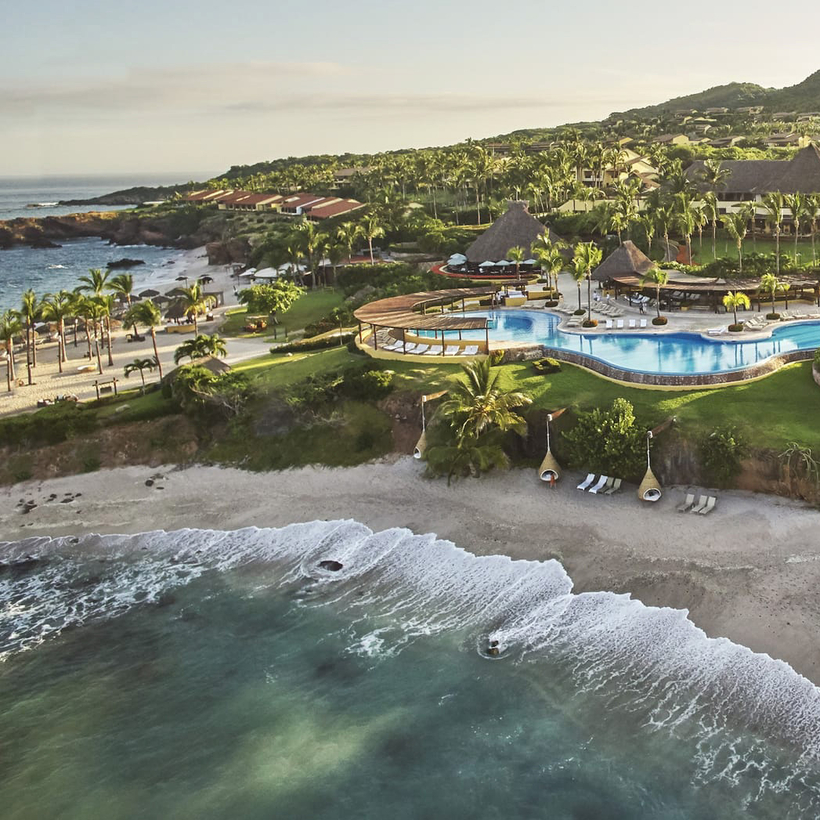Before 2000, the private peninsula studded with high-end resorts known as Punta Mita was simply a collection of fishing villages on the Pacific Coast of Mexico, northwest of Puerto Vallarta. Then a developer showed up. Now, even as much of the world hunkers down in all-too-familiar humble abodes, this piece of paradise is turning into a boomtown—one that practices social distancing—for the 1 percent.
There’s a newly redesigned Four Seasons, a St. Regis with private butler service, and a state-of-the-art hospital with coronavirus tests to spare. There are two Jack Nicklaus–designed golf courses and too many swimming pools to count. Multi-million-dollar villas offer panoramic ocean views. John Legend and Chrissy Teigen spent the month of July at Casa Tesoro, a seven-bedroom, privately staffed home that rents for $8,500 per night (in the off-season).


